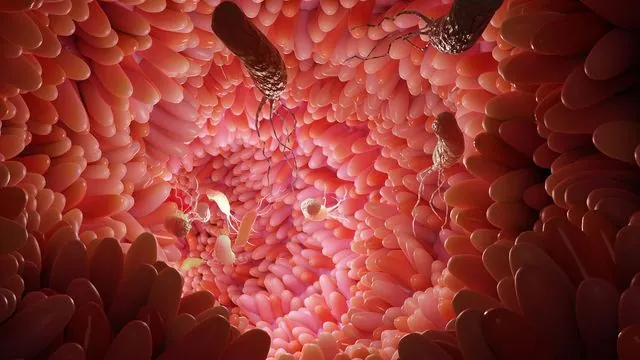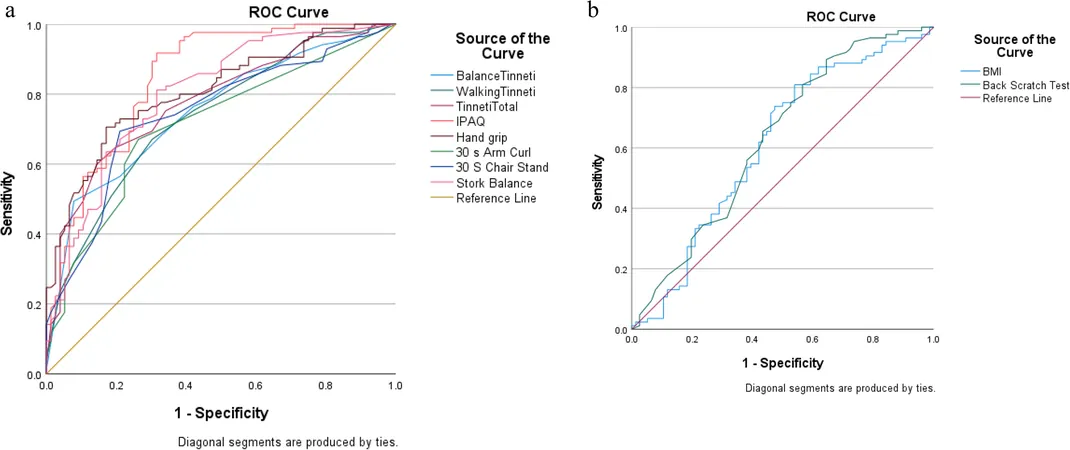
Shocking New Research Reveals How Age, Sex, and Mitochondrial DNA Shape Your Gut Health!
2025-03-20
Author: John Tan
A groundbreaking study has just been published in Aging (Aging-US), where researchers explored the intricate connections between age, biological sex, and mitochondrial DNA's impact on gut microbiome composition in a genetically diverse model of rats. This revolutionary research, led by Hoang Van M. Nguyen and Archana Unnikrishnan from the University of Oklahoma Health Sciences, suggests that the way our gut bacteria change over time may be more complex than we ever imagined!
The gut microbiome, an essential collection of microorganisms residing in our intestines, plays a crucial role in digesting food, affecting metabolism, and even influencing our brain's health. Astonishingly, some of the shifts in these gut bacteria are associated with serious diseases, including Alzheimer’s and Parkinson’s. Interestingly, most previous studies have focused on either males or females in isolation and have largely ignored the role of mitochondrial DNA in influencing these changes.
To bridge this gap, the research team analyzed fecal samples from a unique group of genetically diverse rats, mirroring human genetic variability. The results are illuminating: aging impacts gut bacteria differently depending on biological sex. Female rats showcased more variations in bacterial species as they aged compared to their male counterparts, hinting at distinct microbial aging processes that could ultimately impact how nutrition and disease risk manifest differently in men and women!
But that's not all! The study uncovered that mitochondrial DNA significantly affects how gut bacteria evolve in response to aging. This connection was notably different in males versus females, underscoring a potentially crucial link between mitochondrial function and gut health. Such insights could pave the way for personalized healthcare strategies tailored not just to genetic makeup but to biological differences as well.
Furthermore, the researchers delved into metabolic compounds generated by gut bacteria, such as short-chain fatty acids and bile acids, which are vital for effective digestion. Their findings revealed that aging modifies these compounds based on both sex and mitochondrial DNA—highlighting that older female rats had increased levels of short-chain fatty acids, possibly indicating a divergence in nutrient absorption efficiency.
This landmark study showcases important new factors influencing gut microbiome dynamics in the aging population. The implications are profound: a deeper understanding of how sex and mitochondrial ancestry affect gut health could lead to innovative, targeted approaches for maintaining wellbeing and preventing age-related diseases.
In a world where one-size-fits-all health solutions are fading, these groundbreaking revelations reinforce the pressing need for personalized health strategies that account for our inherent biological and genetic diversity. So, are you ready to rethink your approach to gut health? The future of personalized medicine may very well depend on it!



 Brasil (PT)
Brasil (PT)
 Canada (EN)
Canada (EN)
 Chile (ES)
Chile (ES)
 Česko (CS)
Česko (CS)
 대한민국 (KO)
대한민국 (KO)
 España (ES)
España (ES)
 France (FR)
France (FR)
 Hong Kong (EN)
Hong Kong (EN)
 Italia (IT)
Italia (IT)
 日本 (JA)
日本 (JA)
 Magyarország (HU)
Magyarország (HU)
 Norge (NO)
Norge (NO)
 Polska (PL)
Polska (PL)
 Schweiz (DE)
Schweiz (DE)
 Singapore (EN)
Singapore (EN)
 Sverige (SV)
Sverige (SV)
 Suomi (FI)
Suomi (FI)
 Türkiye (TR)
Türkiye (TR)
 الإمارات العربية المتحدة (AR)
الإمارات العربية المتحدة (AR)